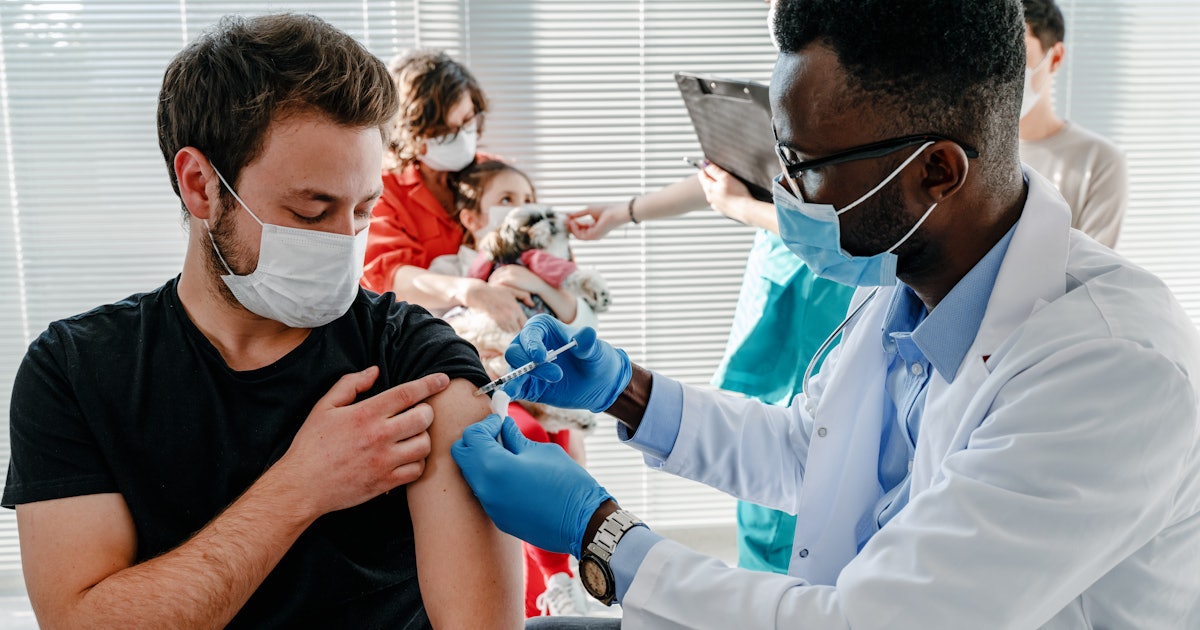Which covid vaccine prevents one from being infected? Which one prevents transmission?
Yesterdays news...vaccines protect you and they prevent spread!
"You get vaccinated not only for yourself, but you get vaccinated for everybody you love,” says Dr. Ashok Rai.

www.wbay.com
GREEN BAY, Wis. (WBAY) - There’s another reason to get vaccinated against COVID-19: data shows it prevents the spread of the virus.
“I think the original motivation that people would say is ‘I want to protect myself.’ Which is right, we want everybody to be healthy. Some people would say, ‘I don’t need the vaccine because I’m going to do fine with COVID.’ Probably not the right attitude, but now even more, you get vaccinated not only for yourself, but you get vaccinated for everybody you love,” says Dr. Ashok Rai, President and CEO of Prevea Health.
A real-world Centers for Disease Control and Prevention (CDC) study found the risk of COVID-19 infection fell 90% by the second week after the second shot.

www.romper.com
New CDC Study: It’s Rare For Vaccinated People To Spread COVID-19
A real-world study of vaccinated individuals saw the risk of infection drop significantly two weeks after they received their second dose.
by
MORGAN BRINLEE
March 30, 2021
A real-world study from the U.S. Centers for Disease and Prevention (CDC) has shown the
Pfizer and Moderna vaccines are highly effective in reducing the risk of infection from COVID-19. In studying both vaccines’ effectiveness in a real-world setting, the CDC found the risk of infection among vaccinated healthcare personnel and first responders fell 90% two weeks after individuals received their second dose of the vaccine.
Moderna Has Started Testing Its COVID-19 Vaccine On Kids & Babies
Pfizer Says Its COVID Vaccine Is Very Effective In Kids Between 12 To 15
New Study Says These COVID-19 Vaccines Work On Pregnant Women & Breastf
“This study shows that our
national vaccination efforts are working,” CDC Director Rochelle P. Walensky said in a statement. “These findings should offer hope to the millions of Americans receiving COVID-19 vaccines each day and to those who will have the opportunity to roll up their sleeves and get vaccinated in the weeks ahead.”
The CDC’s study examined vaccine effectiveness over the course of 13 weeks in 3,950 participants spread across six states. None of the study’s participants had ever had COVID-19 prior to the study and all were deemed to have a high-risk of exposure to the virus due to their roles as healthcare personnel and first responders. More than 62% of participants received both doses of a COVID-19 vaccine during the study while just over 12% of participants received just one dose. Researchers regularly collected nasal swabs and questioned participants about potential symptoms of illness to monitor for infection, including asymptomatic illness.
Researchers found that, as earlier clinical trial data has shown, both the Pfizer and Moderna COVID-19 vaccines were significantly effective at preventing infection. Just one dose of a vaccine was shown to prevent 80% of infections two weeks after it was administered. The second dose prevented 90% of infections by its two week mark.
“It takes about two weeks following each dose of vaccine for the body to produce antibodies that protect against infection,” the CDC explained in a press release issued alongside the study. “As a result, people are considered ‘partially vaccinated’ two weeks after their first dose of mRNA vaccine and ‘fully vaccinated’ two weeks after their second dose.”
According to the CDC, the study found an infection rate of 0.04 infections per 1,000 fully vaccinated participants per day. Among participants who had only been partially vaccinated, the rate was 0.19 infections per 1,000 participants per day. In unvaccinated people, the rate jumped to 1.38 infections per 1,000 participants per day.
The study’s findings suggest that, contrary to early concerns, individuals who have received a COVID-19 vaccination are unlikely to contract an asymptomatic COVID-19 infection and thus pass the virus on to non-vaccinated people.
That’s good news for those hoping vaccines will help bring about an end to the current pandemic. But while more and more states are expanding their vaccine eligibility, public health officials have warned of a potential fourth wave of COVID-19 infections following upticks in case numbers. According to ABC News, at least 23 states and Washington, D.C. have reported an
increase in COVID-19 cases while 13 states have reported an increase in COVID-19 deaths


